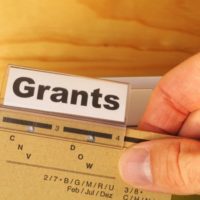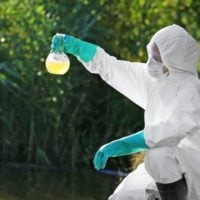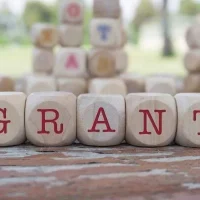Deadline: 8 May 2020
The Clean Cities, Blue Ocean (CCBO) Annual Program Statement for Vietnam seeks Concept Papers from organizations that are interested and qualified to implement local grants that support the program’s objectives to reduce ocean plastics pollution. Grants will be awarded to select organizations to implement effective, locally-led solutions and approaches to combat ocean plastics pollution directly at their source.
The Clean Cities, Blue Ocean (CCBO) is responding to the global crisis of ocean plastic pollution by targeting pollution directly at the source in cities and towns, specifically in rapidly urbanizing areas throughout low- and middle-income countries.
CCBO is working to strengthen the capacity of cities and towns to improve waste management practices through innovative and evidence-based reuse and recycling strategies and to establish enhanced local and regional markets for recycled plastic.
CCBO seeks to:
- Strengthen local and regional markets for recycled plastic and improve effective and locally appropriate solid waste management (SWM) infrastructure;
- Support behavior change and the development, implementation, and enforcement of improved policies and regulations around SWM and reduce, reuse and recycle (3R) practices;
- Increase capacity and effective governance of SWM and recycling systems, particularly at the city level; and
- Build public-private partnerships and enhanced multi-stakeholder alliances that strengthen program collaboration, impact, and sustainability.
Theory of Change
CCBO’s theory of change for SBC in Samaná Province that supports SWM, 3R practices, and CCBO’s overall program objectives is that:
- If participatory research is carried out that identifies how different genders, social classes, and ages regard waste, especially plastic waste, then they will have a better understanding of what cultural, social, and other factors would strongly encourage implementation of 3R behavior and SWM awareness.
- If they have a better understanding of factors to encourage implementation of 3R behavior, then they can develop a menu of 3R behaviors that some community members choose from and test in their daily lives.
- If these behaviors are tested and provide sufficient data on implementation feasibility, then they will be able to design an effective SBC program that leads to sustained 3R supportive behaviors.
Grant Activities
To accomplish this, CCBO seeks to issue a grant to a local non-governmental organization, university, or research institution to work in partnership with CCBO’s SBC technical experts to conduct the formative research necessary to develop and implement SBC strategies that raise awareness and include all segments of the community—including women and youth—in participatory, two-way communication. CCBO seeks to partner with organizations that have participatory SBC experience and have worked or have the knowledge to work in Samaná Province to:
- Collaborate with CCBO to conduct social research to collect information to inform the program’s SBC and women’s economic empowerment (WEE) strategies
- Conduct Trials of Improved Practices (with training provided by CCBO, as needed)
- Collaborate with CCBO to develop an SBC strategy for sustained SWM awareness and 3Rs behavior change
- Identify key stakeholders (representing all Samaná Province communities) and organize a series of day-long workshops to vet the strategy with key stakeholder groups
- With CCBO, revise strategy based on workshop suggestions
- Develop an SBC communication plan as part of an implementation strategy
- Meet with other CCBO grantees working in Samaná to contribute the development of a brief WEE strategy, based on the research and grantees’ experience, to incorporate throughout all grantees’ activities, as possible
Funding Information
- CCBO anticipates awarding (1) one grant that is expected to range from $25,000 to $50,0000.
- CCBO anticipates the formative research and development of the SBC and WEE strategies will take approximately 6-9 months. It is anticipated that grant implementation will begin on or around June 2020.
Eligibility Criteria
- Eligible applicants include:
- Non-governmental organizations, universities, or research institutions with demonstrated experience in SBC;
- Local Dominican Republic organizations; and
- Organizations who have worked or have the knowledge to work in the Samaná Province.
- Organizations who have never received funding from USAID are encouraged to apply.
- Eligible applicants must demonstrate the following:
- Be legally registered to operate in the Dominican Republic;
- Be in good standing with all civil and fiscal authorities in the Dominican Republic;
- Sign applicable assurances and certifications; and
- Be willing to register for a DUNS number.
For more information, visit https://urban-links.org/wp-content/uploads/CCBO-RFA-Dominican-Republic-001-English.pdf





![Call for Applications: “Voices in Motion” Program [Sri Lanka] - fundsforNGOs Call for Applications: “Voices in Motion” Program [Sri Lanka]](https://www2.fundsforngos.org/wp-content/uploads/2023/04/dance-200x200.jpg)



































